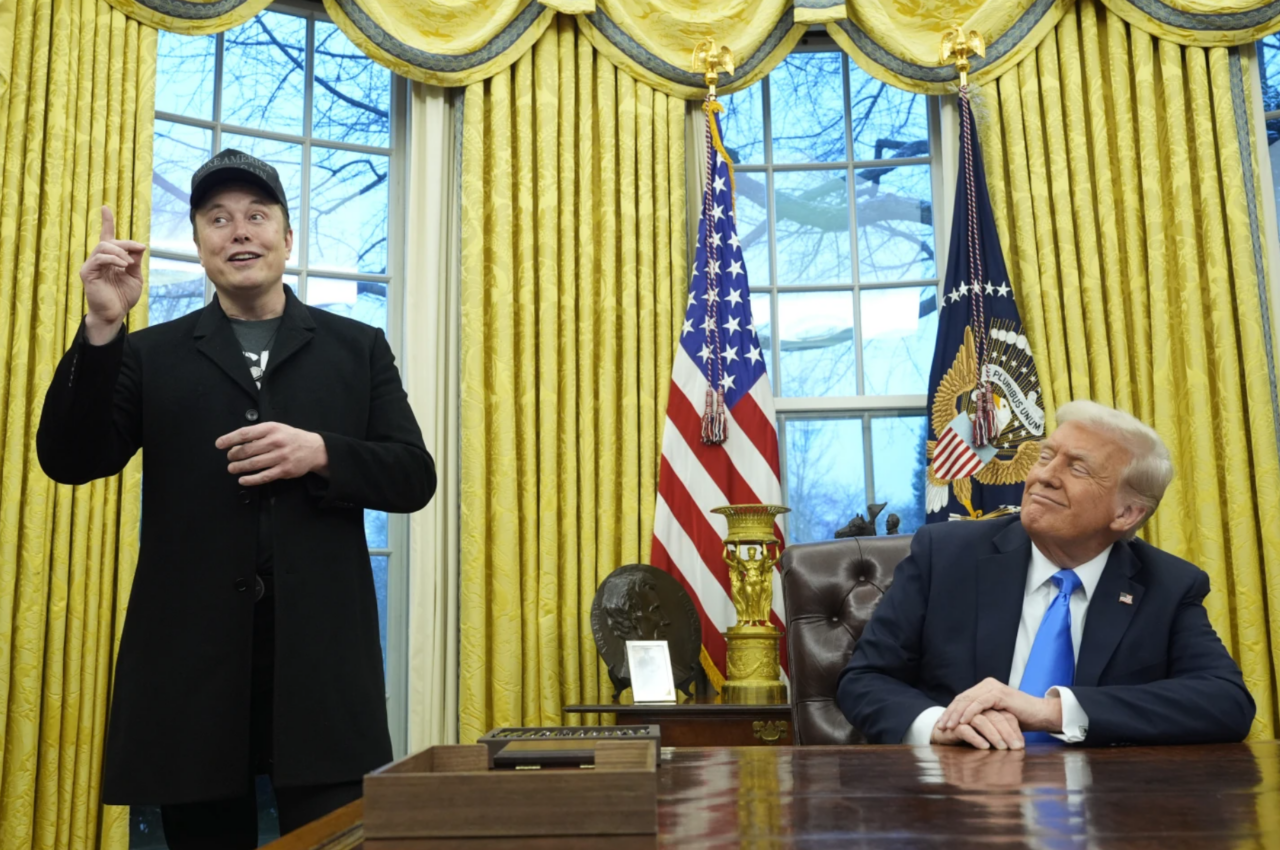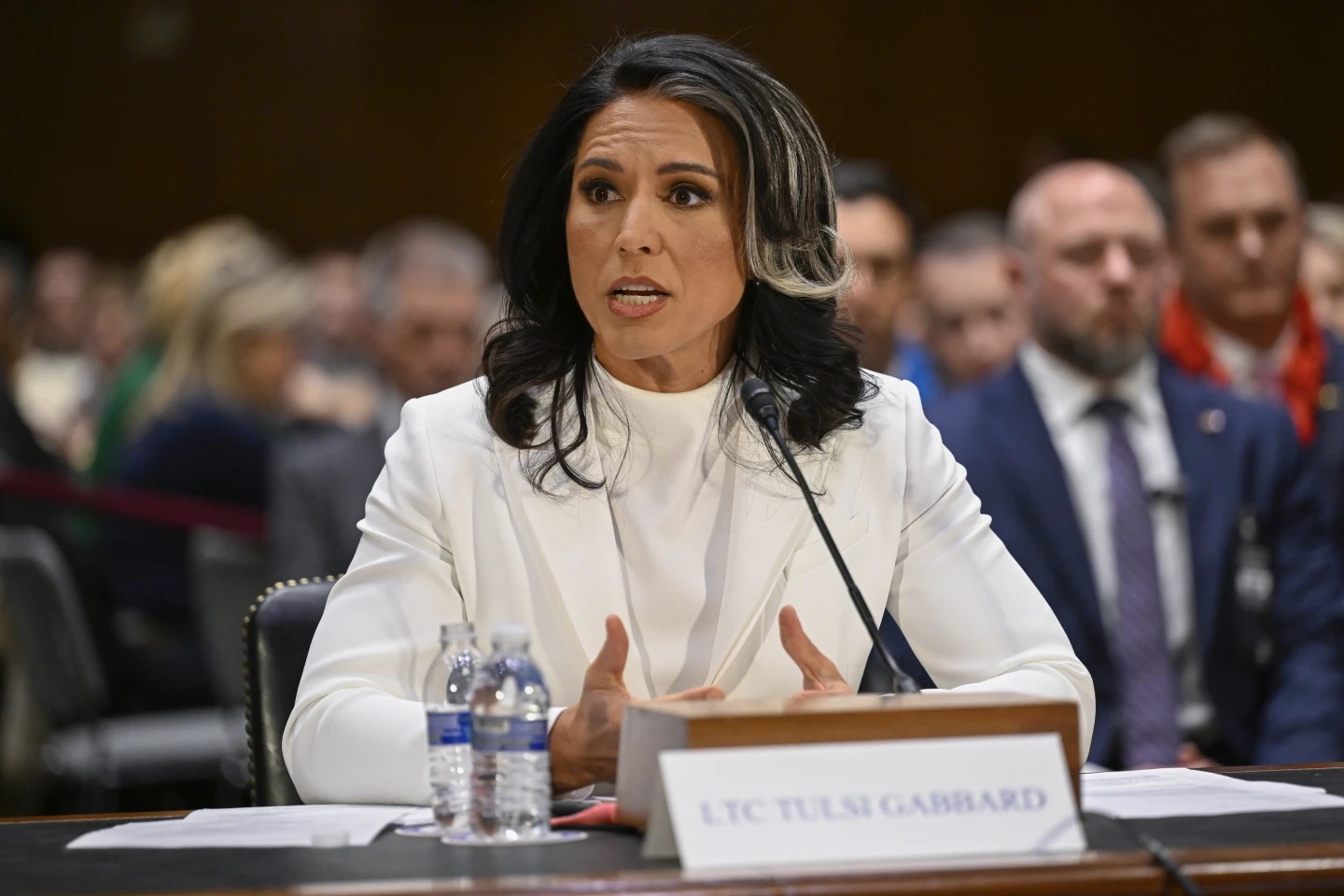Republican Sen. Katie Britt has been working to make sure the Trump administration’s Department of Government Efficiency doesn’t hit what she called “life-saving, groundbreaking research at high-achieving institutions,” including her state’s beloved University of Alabama.
Kansas GOP Sen. Jerry Moran is worried that food from heartland farmers would spoil rather than be sent around the world as the U.S. Agency for International Development shutters.
And Idaho GOP Rep. Mike Simpson warns national parks could be impaired by cutbacks at the start of summer hiring in preparation for the onslaught of visitors.
“We need to have a conversation with DOGE and the administration about exactly what they’ve done here,” said Simpson, a seasoned lawmaker who sits on the powerful Appropriations Committee. “It’s a concern to all of us.”
One by one, in public statements and private conversations, Republican lawmakers are beginning to speak up to protect home-state interests, industries and jobs that are endangered by President Donald Trump’s executive actions and the slash-and-burn tactics erupting across the federal government by billionaire Elon Musk’s DOGE.
While Democrats have been denouncing the impact of Trump’s cuts on Americans, the stirrings from Republicans are less a collective action than targeted complaints. Almost none are openly questioning the purpose or legality of the DOGE effort, which the party has largely cheered. But taken together, the quiet concerns are the first glimmers of GOP pushback against Trump’s upending of the federal government.
“The people voted for major government reform, and that’s what the people are going to get,” Musk said Tuesday in the Oval Office with Trump.
The situation unfolding on a scale like nothing Washington has ever seen as Trump issues executive actions at a rapid clip and Musk’s team roams agency to agency, tapping into computer systems, digging into budgets and searching for what he calls waste, fraud and abuse. Dozens of lawsuits are piling up claiming Trump and DOGE are violating the law.
While Presidents have long taken liberty with their authority to issue executive orders, actions and proclamations toward their goals, the White House typically choses a few signature priorities to make a mark rather than employ such vast power to sweep across the government.
Former President Barack Obama, for example, used executive authority to protect from deportation an entire group of immigrants — the young “Dreamers” who came to the U.S. as children without proper paperwork. Former President Joe Biden used his executive authority to cancel student loan debt for millions. Both actions have been in court and are still making their way through the legal system.
Senate Minority Leader Chuck Schumer said DOGE is taking a “meat ax” to the federal government.
“If you want to make cuts, then you do it through a debate in Congress,” said the New York Senator, “not lawlessly.”
It raises questions about what happens next as judges are quickly slapping on limits and halting many of the White House actions. Both Musk and Vice President JD Vance have questioned the legitimacy of judicial oversight, which is a mainstay of the U.S. democracy and its balance of power.
House Speaker Mike Johnson said he met with Musk at the start of the week and has no concern that DOGE is going too far or treading on Congress’ authority to direct taxpayer dollars or provide oversight of the executive branch.
“To me, it’s very exciting what they’re able to do because what Elon and the DOGE is doing right now is what Congress has been unable to do in recent years,” the Louisiana Republican said, referring to the spending reviews underway.
Johnson said he agrees with Vance and suggested the courts should cool it.
“The courts should take a step back and allow these processes to play out,” he said. “What we’re doing is good and right for the American people.”
Alabama’s Britt was far from alone in speaking up about Trump’s caps on the National Institutes of Health grant program that hit universities, medical centers and research institutions coast to coast.
“While the administration works to achieve this goal at NIH, a smart, targeted approach is needed,” the senator said in a statement.
North Carolina GOP Sen. Ted Budd said he has heard from constituents in his state, home to the Raleigh area’s influential Research Triangle. And Sen. Susan Collins, the Chair of the Senate Appropriations Committee, listed the ways scientists in Maine are conducting “much-needed research on Lyme disease and other tick-borne illnesses, Alzheimer’s, diabetes, Duchenne’s Muscular Dystrophy,” as well as other research as she decried the funding caps.
“There is no investment that pays greater dividends to American families than our investment in biomedical research,” Collins said in a statement.
As the U.S. Agency for International Development was being dismantled, Kansas’ Moran said on social media that “U.S. food aid feeds the hungry, bolsters our national security & provides an important market for our farmers, especially when commodity prices are low.”
The Senator said he spoke to the Department of Agriculture and “the White House about the importance of resuming the procurement, shipping & distribution of American-grown food.”
Moran and others have been working on legislation that would move management of food aid program from USAID to USDA.
On Saturday, Moran shared an update: “GOOD NEWS: State Dept. has approved shipping to resume, allowing NGOs to distribute the $560 million of American-grown food aid sitting in US & global ports to those in need.”
He thanked Secretary of State Marco Rubio “for helping make certain this life-saving aid gets to those in need before it spoils.”
It’s unclear, however, if the aid work will have the funding to resume. And the gutting of global supply lines for aid shipments, thanks to the shuttering of USAID, also makes it uncertain that enough workers can be found to deliver stalled food aid, aid groups say.
In Florida, GOP Rep. Carlos Gimenez is trying to help Venezuelans, who fled their homeland and are now living in the Miami area under Temporary Protected Status, from being deported as Trump ends the program.
Gimenez wrote last month to ask the administration to consider Venezuelans on a case-by-case basis.
“I support the President in the vast majority of things he does,” Gimenez told the Associated Press.
“As a member of Congress, I also have to represent the interests of my constituents,” he said.
Asked if he felt he had the power to make a difference, he replied: “I’m not powerless. I’m a member of Congress.”
___
Republished with permission of The Associated Press.
Post Views: 0


 Entertainment8 years ago
Entertainment8 years ago
 Entertainment8 years ago
Entertainment8 years ago
 Politics8 years ago
Politics8 years ago
 Tech8 years ago
Tech8 years ago
 Tech8 years ago
Tech8 years ago
 Tech8 years ago
Tech8 years ago
 Politics8 years ago
Politics8 years ago
 Tech8 years ago
Tech8 years ago










